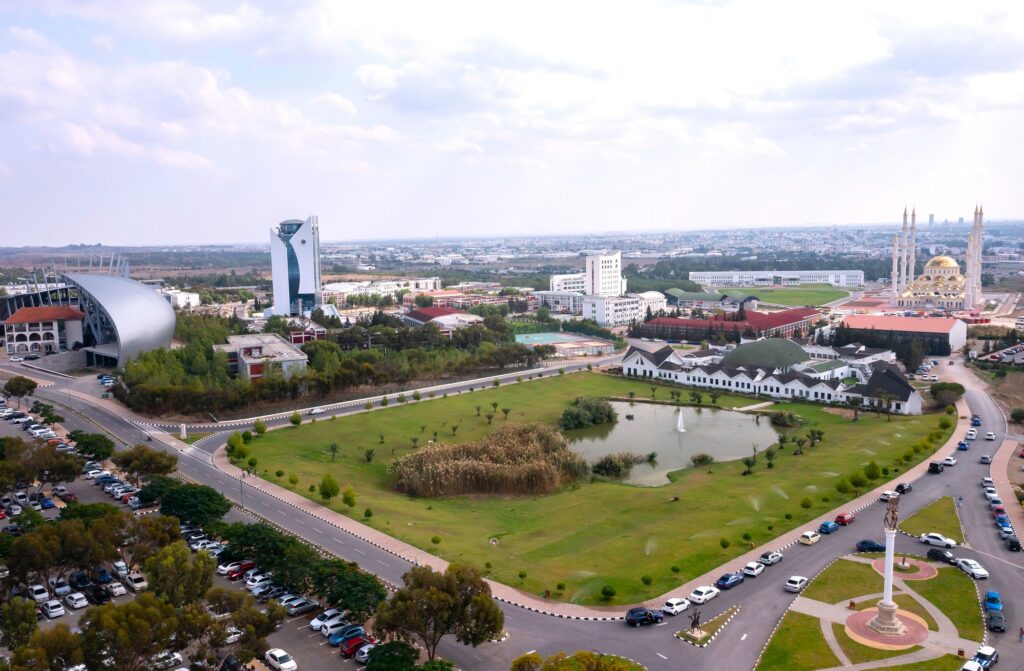
Bacteriophages isolated from a natural pond on the Near East University campus against antibiotic-resistant hospital infections were registered in the US National Center for Biotechnology Information (NCBI) database as “Pseudomonas phage NEU2023” and “Pseudomonas phage NEU2024” and entered the world scientific literature.
DNA sequences of bacteriophages isolated from a natural pond on the Near East University campus by Near East University and La Trobe University researchers have been completed. Bacteriophages that create hope against multidrug-resistant Pseudomonas aeruginosa, the most important source of hospital infections, named “Pseudomonas phage NEU2023” and “Pseudomonas phage NEU2024” and were recorded in the National Center for Biotechnology Information (NCBI) database of the United States National Institutes of Health, which is part of the United States National Library of Medicine.
Three bacteriophages isolated from the waters of a natural pond on the Near East University Campus throughout an international project conducted jointly by Dr. Ferdiye Taner, a researcher at the Near East University DESAM Research Institute, and Assoc. Prof. Dr. Steve Petrovski from La Trobe University in Australia, have created hope in the fight against multidrug-resistant Pseudomonas aeruginosa, the most common source of hospital infections.
The DNA of two of the bacteriophages, which were determined to be highly effective in killing strains of the antibiotic-resistant “Pseudomonas aeruginosa” bacteria, was isolated by Near East University researchers. The genome sequences of the bacteriophages were performed by scientists collaborating in Australia. Officially named “Pseudomonas phage NEU2023” and “Pseudomonas phage NEU2024”, the bacteriophages have been uploaded to the National Center for Biotechnology Information (NCBI) database, which is part of the United States National Library of Medicine and operates as a division of the United States National Institutes of Health. The database, which is freely accessible online worldwide, has become available for scientists to research.
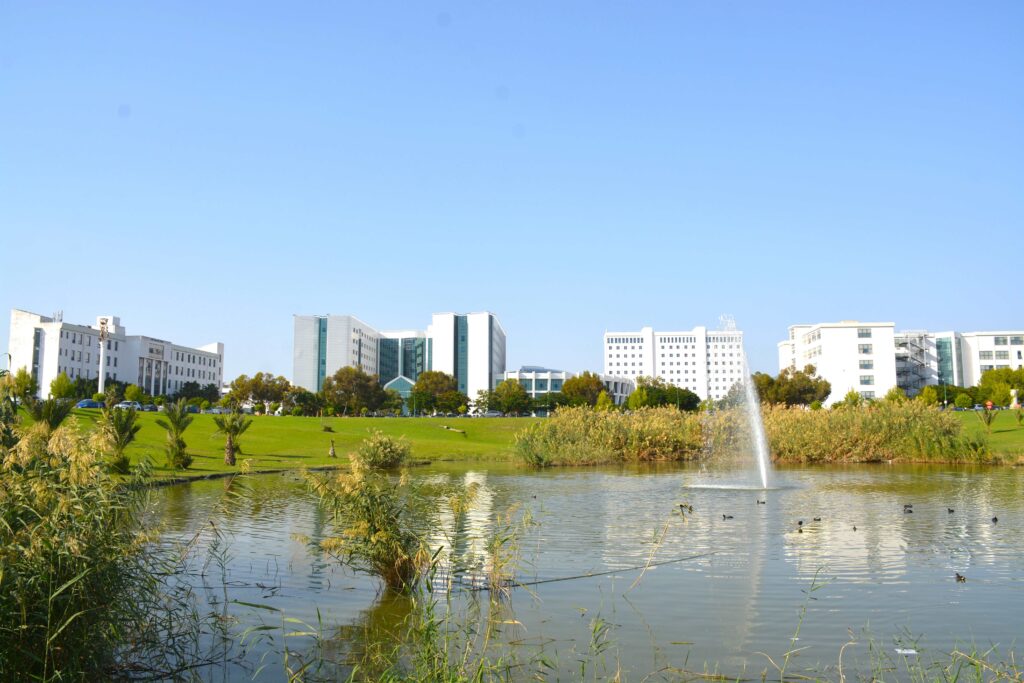
New bacteriophages discovered in collaboration with Turkish and Australian scientists!
The new bacteriophages isolated as a result of studies conducted by Near East University with international collaborations create a powerful alternative to antibiotic-resistant bacteria that threaten human health all over the world. The project, led by Dr. Ferdiye Taner from the Near East University DESAM Research Institute and Assoc. Prof. Dr. Steve Petrovski from La Trobe University, also includes Prof. Dr. Ahmet Başustaoğlu and Assoc. Prof. Dr. Aylin Üsküdar Güçlü from Başkent University. Near East University President Tamer Şanlıdağ, Near East University Kit Production Laboratory Manager Dr. Gökçe Akan, Dr. Gülten Tuncel and DESAM Research Institute researchers Prof. Dr. Murat Sayan and Doruk Kaynarca are also included in the project team. Vaheesan Rajabal from La Trobe University is also among the scientists contributing to the project.
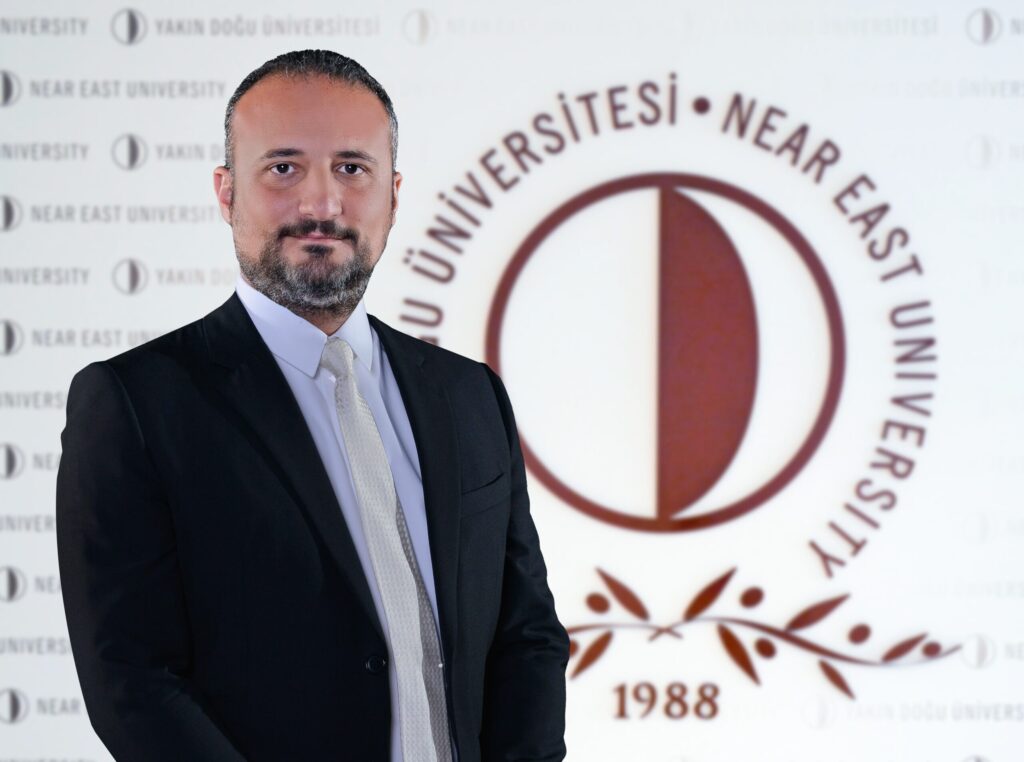
Prof. Dr. İrfan Suat Günsel: “The fact that the bacteriophages discovered by our researchers are included in the US National Center for Biotechnology Information (NCBI) database with the code ‘NEU’, which is the English abbreviation of our university, is extremely important in terms of demonstrating our research capacity.”
“The studies conducted on our campus and the results obtained against the antibiotic-resistant bacteria crisis experienced worldwide are a great gain not only for our university but also for humanity,” said Near East Enterprises Board of Trustees Chairman Prof. Dr. İrfan Suat Günsel, and added; “The fact that the bacteriophages discovered by our researchers through our international collaboration have been entered into the US National Center for Biotechnology Information (NCBI) database with the code ‘NEU’, which is the English abbreviation of our university, is extremely important in terms of showing our research capacity.”
Prof. Dr. İrfan Suat Günsel also said; “I congratulate our researchers, who have provided a scientific solution against antibiotic-resistant bacteria that threaten human health with their discoveries, for their devoted work and scientific contributions.”
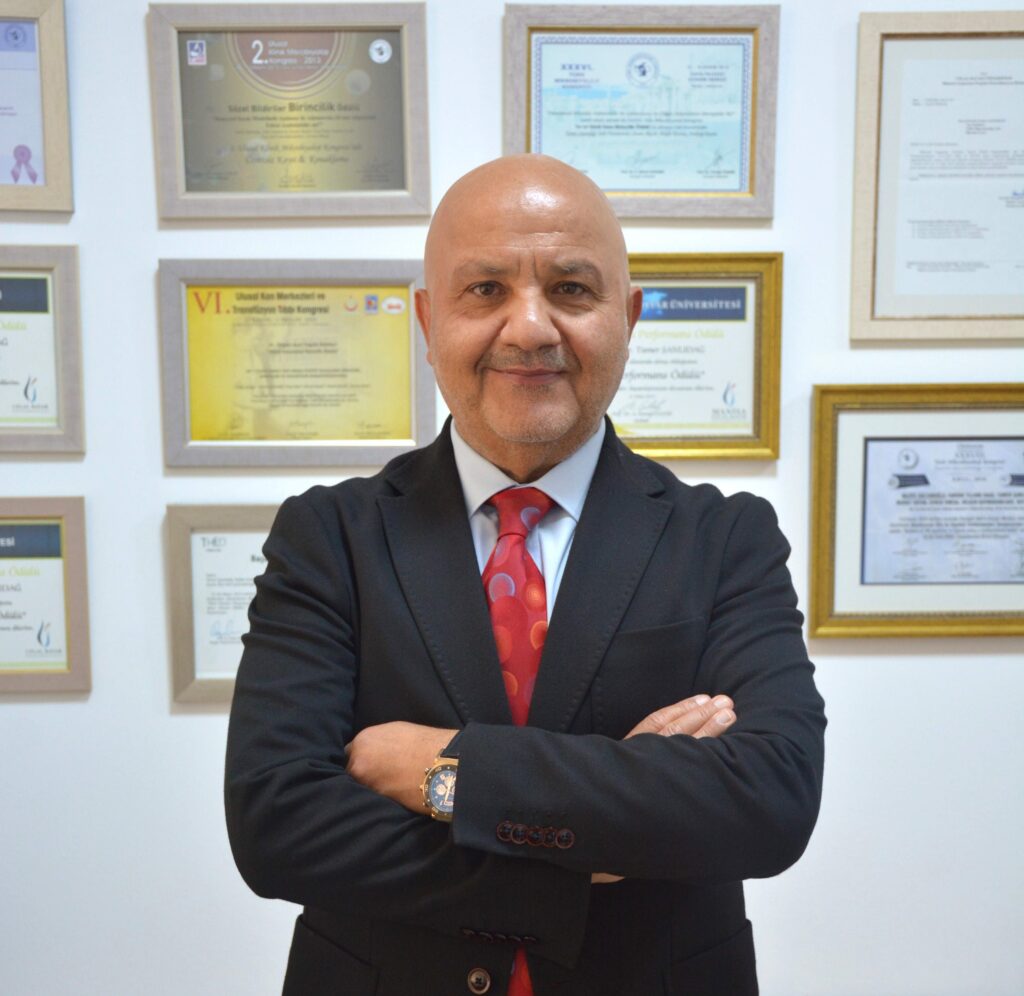
Prof. Dr. Tamer Şanlıdağ: “This discovery, which provides a strong alternative against multi-drug-resistant bacteria, will shed light on future medical research and make great contributions to human health.”
Near East University President Prof. Dr. Tamer Şanlıdağ said, “The fact that the results of our research are available to scientists around the world in the US National Center for Biotechnology Information (NCBI) database is the confirmation of Near East University’s leadership in scientific research on an international platform once again.”
“This discovery, which provides a strong alternative against multidrug-resistant bacteria, will shed light on future medical research and make great contributions to human health,” said Prof. Dr. Tamer Şanlıdağ, adding, “I would like to thank all scientists and researchers who contributed to this important project.”
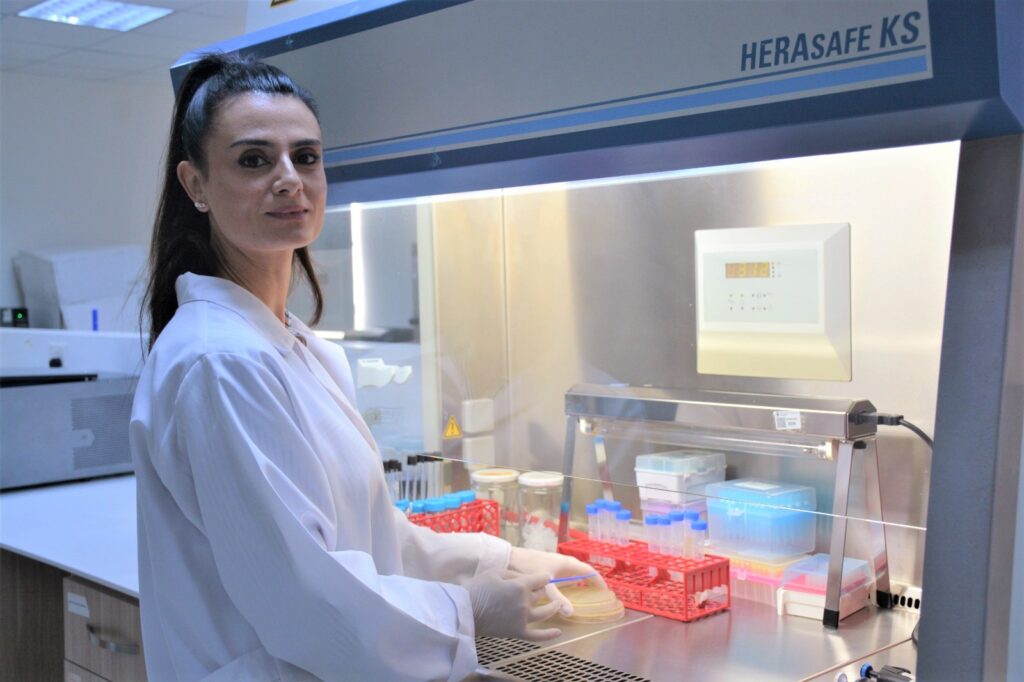
Dr. Ferdiye Taner: “Thanks to the comparison of the genomes stored in NCBI, we see that Pseudomonas phage NEU2024 can be classified as a new strain.”
Dr. Ferdiye Taner, a researcher at the Near East University DESAM Research Center and one of the project’s managers, said, “As a result of sequencing the entire genome of the new bacteriophages we discovered, we now have the opportunity to conduct more experiments. This genomic data also allows us to understand how genetically our bacteriophages are related to other bacteriophages discovered in the world. This type of information also provides epidemiological data on where else Pseudomonas aeruginosa-specific bacteriophages are found and how genetically unique our strains are compared to other Pseudomonas aeruginosa-specific bacteriophages.”
Dr. Ferdiye Taner emphasized that the bacteriophages they discovered were a new strain and said, “Thanks to the comparison of the genomes deposited in NCBI, we see that Pseudomonas phage NEU2024 can be classified as a new strain. There is no other phage that is 100% genetically identical to the other bacteriophage genomes deposited in NCBI.”